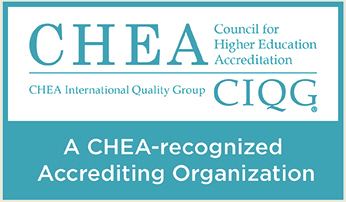Professional Doctorate Degree Programs
CAMPEP offers accreditation of professional doctorate in medical physics (DMP) programs. The goal is to ensure that a DMP program provides rigorous and thorough didactic and clinical education such that program graduates are appropriately prepared to start a clinical certification process such as that offered by either the American Board of Radiology or the Canadian College of Physicists in Medicine.
The Process of CAMPEP accreditation of DMP programs requires that the program submit a self assessment report using the template available giving evidence of consistency with a set of clearly stated standards. DMP programs are expected to satisfy both the Standards for Accreditation of Graduate Educational Programs and the Standards for Accreditation of Residency Educational Programs. The application is reviewed by a team consisting of senior medical physicists with experience in both clinical practice and educational programs and may include a physician. The steps involved in the accreditation process are outlined below. If successful, accreditation is granted for a period of 3 years. Re-accreditation requires an updated self assessment report.
All members of the program review teams act for CAMPEP on a volunteer basis. A fee is charged for each application and re-application to cover the incidental costs of the accreditation process, including travel expenses related to the site visit.
The application template is available from the link on the left hand panel. A right mouse click on the link will enable a copy of the template to be saved to your local disc. The initial application submitted via an online submission process must include an official request for accreditation in the form of a letter from a principal administrative officer of the institution inviting CAMPEP to conduct an evaluation of the medical physics education program. An institution's request for its program to be evaluated by CAMPEP is totally voluntary and, as such, the institution agrees to abide by the decision of the CAMPEP Board of Directors.
Then comes the standard fee information with the amount $7500.
This fee is due at the time the application is submitted.
Credit
card payments may be made via the Online Self Study Submission System.
Or a check made
payable to "CAMPEP Inc." (Tax ID # 54-1748225) may be mailed to:
Jacqueline
Ogburn, at the address on the contacts
page.
Self Study Documents may be submitted via the Online Self Study Submission
Contact Jacqueline Ogburn for assistance.
Steps Involved
- The preparation and submission to CAMPEP of a self-study evaluation by the institution applying for accreditation. All self-study documents must be in English or must have an accompanying English translation. The purpose of the self-study is to document the scope and performance of the program. This document is the primary vehicle for CAMPEP’s evaluation of a program applying for accreditation. Secondarily, the self-study provides a body of information that permits a critical self-evaluation and the development of goals for self-improvement. The official request and institutional accreditation documentation shall be contained in an appendix of the self-study. The fee for accreditation is due at the time the application is submitted. The review of the self-study document by the CAMPEP review team shall commence after receipt of the application fee.
- The preliminary review of the self-study by the CAMPEP review team comprised of members of the GEPRC and REPRC.
- The resolution of any questions or concerns identified during the preliminary review. A satisfactory response from the program director to these questions is required before proceeding to the next step. If the preliminary review raises no concerns, this step is not required.
- The site visit by the CAMPEP review team. Site visits are always scheduled for first time applicant institutions but may not be deemed necessary for institutions being re-accredited. In all cases, institutions applying for reaccreditation will be visited, at the least, on every other occasion on which they apply for reaccreditation, i.e., at least once every ten years.
- The preparation of a program evaluation report, including any appropriate recommendations, by the site review team. This report must be approved by both the GEPRC and the REPRC prior to submission to the CAMPEP Board of Directors.
- Consideration of the program review team recommendations by the CAMPEP Board of Directors.
- Communication of the resulting recommendation of the CAMPEP Board of Directors to the applicant institution.
On Site Program Review
Purpose and Structure
The site visit requires 1.5 – 2.0 days and is
scheduled at a time that will permit the members of the site visit team to meet with one or more of the
principal administrative officials of the institution, the faculty and the students, and shall, therefore, be
during a time when classes are in session.
The purpose of the site visit is to examine selected areas of the program identified in the self-study review where questions may exist; to meet and talk personally with faculty members, students, and administrative officials; to observe the adequacy of facilities; to assess the aptitude and commitment of students and faculty; to observe the general educational and scientific environment at the institution; and to obtain any additional data required for evaluation.
The site visit team shall be provided with records generated by the medical physics programs including, but not limited to, minutes of faculty meetings and governing committee meetings, course evaluations, lecture materials, and student admission records. Any records to which the site-visit team has legal access shall be available for review at their request. Also available for review to the site-visit team shall be theses and dissertations produced by program graduates, and the course exams and qualifying exams for the current and preceding academic year.
Site Visit Team Composition
The site visit team (generally three or
four members of the GEPRC and REPRC) is composed of experienced educators and scientists thoroughly familiar
with CAMPEP’s criteria and knowledgeable about administrative, technical and clinical aspects of successful
programs. In the selection of members of the site visit team for a particular on-site evaluation visit, every
effort is made to eliminate any conflict of interest or bias. For instance, a graduate of the institution
under evaluation, or a person having a close and continuing relationship with the institution, would not be
chosen to assist in the visit and evaluation. Neither would one be selected who is a faculty member at an
institution in the same immediate geographical area nor from one having any substantial number of its
graduates on the faculty at the institution being evaluated.
Accreditation Status
Initial Accreditation: If a new educational
program has already enrolled trainees (Note: A non-accredited residency program may not accept residents),
then, following a Site Visit, Initial Accreditation may be granted by the Board for three years. If the
program has yet to admit a student/resident, Initial Accreditation may be granted for a period until the first
full-time student/resident has completed the first year of study and not to exceed two years, at which time a
Site Visit will take place. Following the Site Visit, Initial Accreditation may be extended by the Board so
that the total Initial Accreditation period after the initial Board action is three years.
In either
case, if the program submits acceptable annual reports during these three years of Initial Accreditation, it
may be extended an additional two years on the recommendation of the appropriate Review Committee(s) and
granted by the President upon recommendation by the Review Committee Chair.
Reaccreditation: Educational programs applying for Reaccreditation may be granted accreditation for a period of up to five years.
Provisional Accreditation: Provisional Accreditation for a period of up to three years may be granted at the discretion of the CAMPEP Board if circumstances preclude awarding of accreditation. The terms for ending the Provisional Accreditation shall be specified by the Board.
Accreditation Denied: This action is taken when a program is found not to comply with CAMPEP standards for accreditation and it appears that the changes that the program would have to make to qualify for accreditation could not be achieved within a reasonable period of time. After this decision, should accreditation be further pursued by the program, a new application shall be required, including the appropriate fee.
When a DMP program is accredited, CAMPEP will provide a certificate of accreditation to the institution and a copy of the program review report listing any required and recommended changes. The program director must provide updated information on any required and/or recommended changes at the time of each subsequent annual report.
The name of the institution and program will appear on the CAMPEP website on the list of medical institutions whose programs have been accredited by CAMPEP.

